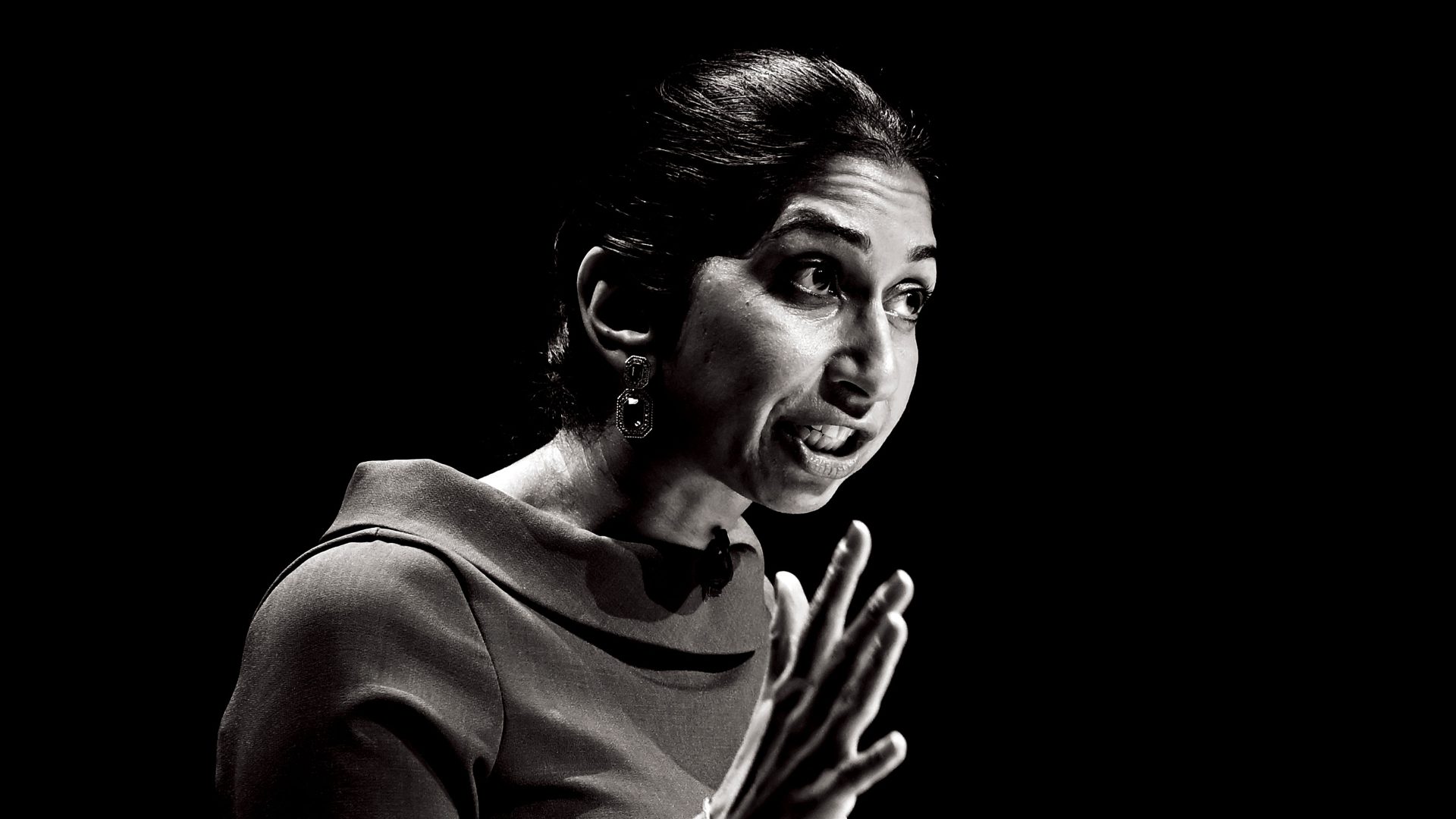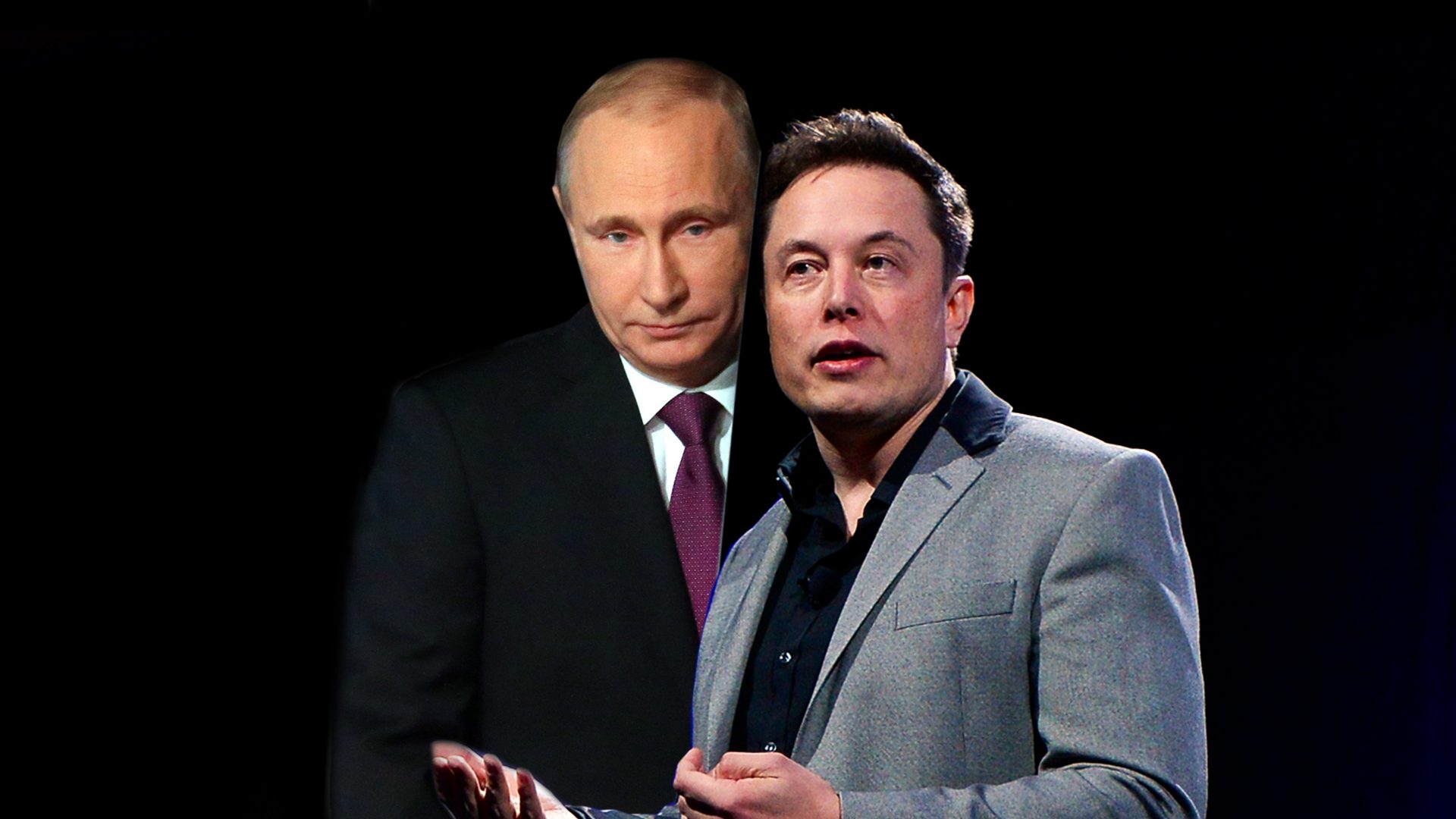This article was originally published on 6 October 2022. On 26 September 2023, the home secretary said discrimination for being gay or a woman should not be enough to qualify for international refugee protection.
It was a Conservative conference not short of profoundly dispiriting moments. Yet one moment surpassed all others when it came to giving voice to the most base ambitions of the self-declared nasty party.
“I would love to be having a front page of the Telegraph with a plane taking off to Rwanda. That’s my dream. That’s my obsession,” the new home secretary, Suella Braverman, told a fringe meeting hosted by the Daily Telegraph, a wistful smile playing on her lips.
Across social media and living rooms everywhere came one instinctive response: what the hell is wrong with her? How could the home secretary’s response to the plight of asylum seekers arriving in Britain be so dismissive of the trauma of their journeys and their experiences? How could a woman whose own parents arrived as strangers in this country give gleeful voice to such repugnant callousness? The questions remain unanswered: Suella Braverman embodies a strange brand of cruel.
Braverman said several hurtful, dangerous things in Birmingham – drawing a standing ovation while lashing out wildly at lefty lawyers, “paedophiles from Pakistan” and “too many asylum seekers” – but the comment that caused most consternation came in a Telegraph fringe meeting when she spoke of her efforts to stop desperate people crossing the Channel to seek asylum and refuge in the UK.
As the clip began to circulate online, comparisons were drawn to Martin Luther King’s seminal “I have a dream” speech. Even many sympathetic to the arch-Brexiteer (and certainly not only those dubbed “the left” who Braverman declared she loved to annoy) wondered what had happened to make her appear so heartless.
In fact, there is little in the 42-year-old lawyer’s upbringing to explain her survival-of-the-most-fortunate ideology that portrays society’s vulnerable as simply one more problem to be solved.
Braverman’s father was born in Nairobi but was forced to flee Kenya in the late 1960s. He was a British citizen while her mother was just 18 when she was recruited from Mauritius to work as a nurse in the NHS. Both were of Indian origin and must have found it difficult at first to settle in the land that was to become their home.
Braverman herself highlighted her father’s sense of displacement in her maiden speech to parliament in 2015, after she was elected as MP for Fareham in Hampshire.
“On a cold February morning in 1968, a young man, not yet 21, stepped off a plane at Heathrow airport, nervously folding away his one-way ticket from Kenya. He had no family, no friends, and was clutching only his most valuable possession, his British passport. His homeland was in political turmoil. Kenya had kicked him out for being British. My father never returned. He made his life here in Britain, starting on the shop floor of a paint factory,” she said.
The confusion and disorientation her father felt – despite the fact that he was lucky enough to have British citizenship – will be familiar to many of the people arriving cold, alone and afraid after terrifying journeys across the Channel. But the comparison seems lost on the woman in charge of Britain’s immigration policy. Because Braverman’s parents took a recognised route to a safe haven, her logic is that everyone else should do the same. Because they were able to integrate successfully, no one else should have any problem doing so.
Braverman was born in Harrow and grew up in Wembley, north-west London. She attended fee-paying Heathfield school in Pinner after winning a partial scholarship. Politics formed the backdrop to her family life and she dreamed from an early age of one day becoming prime minister. Her mother, Uma, ran twice unsuccessfully for parliament and served as a councillor for Brent for 16 years. Her father, Christie Fernandes, was a political activist. If there can be any hint as to a family code, her father perhaps articulated it best in an interview with the Times of India last month when he said he believed in individual ambition. This certainly seems to have been passed on to his daughter.
There was some upheaval when Fernandes lost his job as an insurance broker in the 1990s and was unemployed for several years. “His sense of identity was shattered,” Braverman told the Times. “Mum became the backbone of the family, financially and emotionally, and that was a big epiphany for me”.
Braverman, who is a member of the Triratna Buddhist Community, read law at Queens’ College, Cambridge, and then completed an Erasmus year in France – a scheme no longer open to young people today because of the Brexit she championed. She did a master’s degree in European and French law at the Panthéon-Sorbonne University, and specialised in commercial litigation, judicial review, immigration and planning law.
She has spoken about how difficult she found it to be a Tory in the years after Tony Blair won a landslide victory in the 1997 general election, ushering in 13 years of Labour Party rule.
“Starting my career as a young barrister in London, I was the shy Tory in my chambers of ‘right-on’ human rights lawyers. Despite the social stigma, I was inspired by Conservative values of freedom from an interventionist state, personal responsibility and choice,” she told Conservative Home in 2019.
Is this what fuelled her personal drive to position herself as a rebel, an outsider willing to take on the establishment, however distasteful the revolution would have to be?
In truth, Braverman’s relatively unremarkable backstory offers slim pickings for the amateur psychologists looking for clues as to her motivations. And so perhaps the answers lie in the times we live in. Because Braverman is a politician of our times and for our times, and the times they are nasty, divisive and turbulent, and garnished with a trite sense of triviality.
An arch-Brexiteer with a rose-tinted view of the British empire that brought her parents to these shores, Braverman typifies a kind of conservatism that thrives on division and on a cruel and self-righteous attitude to society’s most vulnerable. A conservatism that doesn’t send the ladder down, but rather pulls it up and mans the ramparts in defence of wealth and privilege.
It is the conservatism of the European Research Group (ERG), which Braverman briefly chaired in 2017. A conservatism once relegated to the fringes of a party that has since supped with the devil and is now paying the price with the loss of its soul.
Braverman’s political rise has been rapid. During the January 2018 reshuffle, she was appointed parliamentary under-secretary of state at the department for exiting the EU. In November, she resigned in protest at then prime minister Theresa May’s draft Brexit deal. Boris Johnson made her attorney general in February 2020 and after his political demise, she ran for the Tory leadership this summer. When she was eliminated in the early stages, she switched her allegiance to Liz Truss and was rewarded with the job of home secretary.
The range of her ambition was on full display during her conference speech last week. She promised to bring forward legislation to “make it clear that the only route to the United Kingdom is through a safe and legal route”, wisely eschewing any admission that almost all of those routes are now shut.
“If you deliberately enter the United Kingdom illegally from a safe country, you should be swiftly returned to your home country or relocated to Rwanda. That is where your asylum claim will be considered,” she said, disregarding the 1948 Universal Declaration of Human Rights, which states that everyone has the right to seek asylum from persecution in other countries. She also ignored the 1951 UN Refugee Convention, which lays out the right of refugees not to be returned to a place where they are at risk of persecution, as well as their right not to be penalised for entering a country without permission where this is necessary for them to seek asylum.
You would think a lawyer might know about these international stipulations. And yes, there may be some people who cross the Channel and who are not entitled to asylum, but the numbers show that the majority of those who apply for asylum in the UK – more than 70% – receive a positive initial decision.
It’s hard to believe, but Braverman’s declarations make her predecessor, Priti Patel, look caring, and bear in mind Patel was responsible for passing the Nationality and Borders Act that punished people entering the UK illegally or overstaying a visa with up to four years in prison. That law also gave the government broad powers to send asylum seekers to offshore detention centres. Earlier this year, the Rwanda deportation plan was introduced, and swiftly denounced as immoral and barbaric by such lefty organisations as the United Nations and the Church of England.
The Rwanda plan is also, much to Braverman’s obviously sincere chagrin, not working. The first flight was aborted in June after an 11th-hour challenge from the European court of human rights, ensuring a lengthy legal battle and placing the ECHR, and its governing convention, firmly in Braverman’s sights.
Braverman’s unassailable commitment to the most hostile of immigration policies also speaks to a refusal – or perhaps an inability – to engage with the complexities of the problem. Each time the legal screw is tightened, the numbers of people arriving on the southern coast rise. Already this year, almost 33,000 people – a new record – have arrived on small boats and there are predictions that this could reach 60,000 by the end of the year. So even if you do feel foreigners are at the root of all the UK’s problems, it would seem True Blue Tories like Braverman do not have the answer.
In her maiden speech, Braverman acknowledged: “It is a stroke of luck to be born British.” Sadly, the recognition of this fact only extends to herself. She is seemingly incapable of directing that thought outwards to fully realise the cruelty of geographical destiny that drives so many thousands to undertake dangerous journeys to distant lands. “There but for the grace of god and geography go I” will never be a Tory Party motto, it seems.
Braverman does not just reserve her disdain for the world’s neediest. She is happy to target the needy at home too.
“I think we have far too many people in this country who are fit to work, who are able to work and should be working… and they choose to top up their salaries with tax credits… the Benefit Street culture is a feature of modern Britain,” she said at the Telegraph fringe event.
It’s a particularly cruel statement at a time when fuel bills are soaring and when there is an unedifying debate among Tories about whether the poorest should see their benefits rise in line with runaway inflation or suck up the difference by trimming the margins of already skeletal lives.
Like the other Tories gracing the top table of power, Braverman has a tin ear and a lack of self-awareness. Think Kwasi Kwarteng joking about the “little turbulence” caused by his mini-budget, which cost real people real money as mortgage rates spiralled and the pound slumped. Think Tory Party chairman Jake Berry telling those struggling with higher bills that they could either “cut their consumption or get a higher salary”.
Recounting a story of how she was once mugged by a moped-riding thief, Braverman told the fringe event that at first she thought her mugger was joking when he snatched her phone. “I take a benign view of humanity,” she laughed, seemingly forgetting her earlier statements railing against “illegal migrants”.
When asked about her thoughts on U-turns, she glibly joked about her dire driving, laughing: “Don’t get in a car with me!” Believe us, Suella, if we could get out, we would.
These glimpses of superficiality send a chill down the spine, especially when one realises the power she now wields. Alongside her truly dangerous policy ideas, Braverman wants to stop police dancing the Macarena while working at Pride festivals, and would like action taken against middle-class parents who turn a blind eye to their kids smoking weed.
Neither is Braverman’s own track record flawless. The woman who denounced the Tory “coup” against Truss’s tax cut plans was herself among the so-called Spartans who defied the whip and helped to vote down May’s EU withdrawal agreement for the third time. This cleared the way for the ascension of Boris Johnson and the descent of his Tory government into a European laughing stock during the Partygate scandal.
The woman who rails against people “gaming” the asylum system through lies and fabrications is herself no stranger, it would appear, to embellishing the truth.
The Big Issue has reported that her claims that she “contributed” to a legal textbook were rubbished by the book’s author, Philip Kolvin KC. He says she did some photocopying for him. And when she was Johnson’s attorney-general, Braverman was hitting headlines in a way that would have discomfited most previous incumbents of the role of chief legal adviser to the government, a supposedly independent role.
She was fiercely criticised for backing the controversial internal market bill, which would have given the government the power to breach the Brexit withdrawal agreement, an international treaty. She was also lambasted for tweeting her support for Dominic Cummings’s lockdown-era trip to Durham in May 2020.
On her personal website, Braverman has written: “aspiration is my inspiration”. It turns out it should read: “my aspiration is my inspiration”.
Who knows how far that personal ambition will take her. With Truss’s days probably numbered, the woman described by some Conservative commentators as the new darling of the party may yet fulfil at least one of her dreams: to become prime minister. We may all consider leaving the country at that point.




